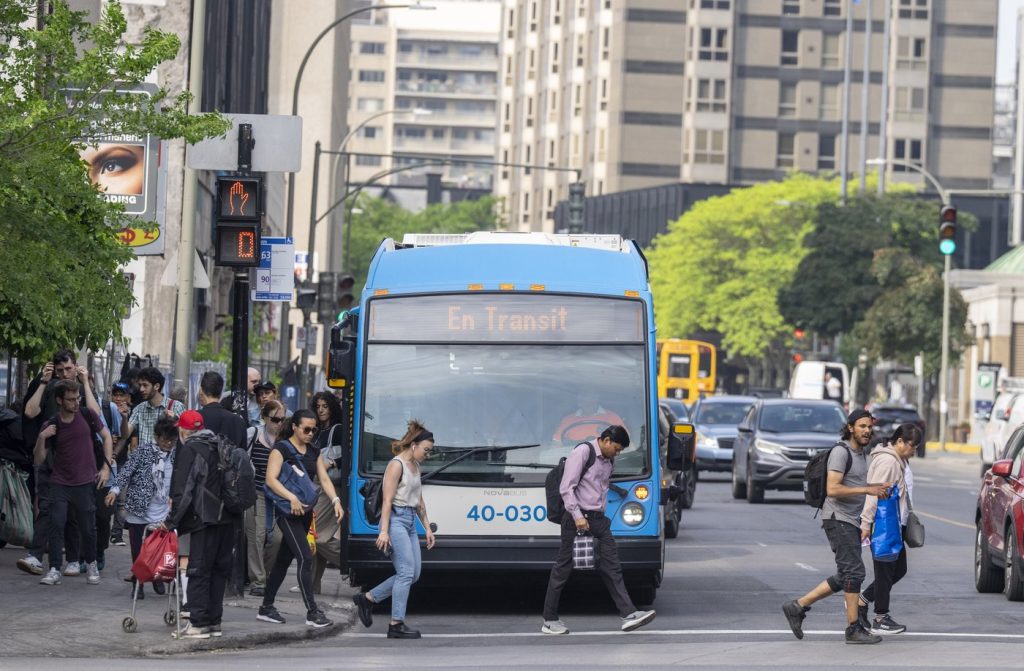OTTAWA — A transit advocacy group has issued a warning regarding the new U.S. tariffs on buses, which are set to take effect this weekend. The group argues that these tariffs could severely disrupt the budgets of cities across North America, ultimately affecting residents and riders through increased property taxes, transit fares, parking fees, and potentially even congestion charges.
U.S. President Donald Trump announced a tariffs package on heavy and medium-sized trucks earlier this month, citing national security concerns. This package includes a 10 percent duty on buses, which has raised alarm among transit officials and mayors throughout North America.
Josipa Petrunic, CEO of the Canadian Urban Transit Research & Innovation Consortium (CUTRIC), expressed that the interconnected nature of the Canadian and American bus manufacturing industries makes these tariffs particularly problematic. She highlighted that parts frequently cross the border, and the impact of these tariffs could lead to significant increases in costs for cities attempting to expand their bus fleets. Cities, in dire need of acquiring enough buses, would find themselves unable to purchase as many as they had planned due to rising vehicle and parts prices and diminishing production runs.
Petrunic noted that mayors should be alarmed, as the pricing of buses in the pipeline would instantly become more expensive — up to a 10 percent increase — even for contracts that have already been signed. She provided insights into the financial implications, mentioning that a hybrid bus costs approximately $900,000, while an electric bus can easily reach around $1.3 million.
Critically, there are no exceptions or carve-outs regarding compliance with trade agreements or Buy America policies associated with these new tariffs, differing from the more lenient new truck tariffs. This lack of flexibility is expected to pressure municipalities as they navigate their already constrained budgets.
Rebecca Bligh, president of the Federation of Canadian Municipalities, shared her deep concerns regarding the impending bus tariffs. She warned that these tariffs would directly elevate the costs of public transit in Canada and jeopardize thousands of manufacturing jobs. Bligh stated that higher expenses would result in fewer new buses being available, slower progress toward cleaner bus fleets, and an increased risk of service cuts or fare hikes — significant concerns for communities already grappling with rising infrastructure costs.
The Canadian bus manufacturing sector is a vital industry, employing over 25,000 individuals, and it has already suffered setbacks due to previous tariffs on steel and aluminum imposed by President Trump. The industry is dominated by three major manufacturers: New Flyer, which operates plants in Winnipeg and captures a significant portion of the market, Nova Bus based in Saint-Eustache, Quebec, and Gillig, located in California's East Bay region.
In response to the recent tariff announcements, New Flyer, owned by NFI Group, indicated that it is carefully reviewing the details of the new tariffs on buses and motor coaches entering the U.S. market to assess the potential implications for its operations.
This looming situation underscores the critical intersection between trade policy and public transit funding in North America, with ramifications expected to ripple through communities that rely on efficient and affordable transportation systems.











